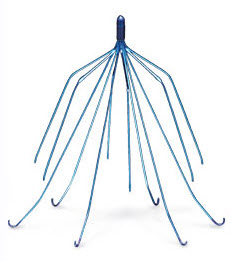If someone were to walk up to you and offer you $1,000 today, with the expectation that you pay them $3,000 in a month or a year you would likely look at them with shock and dismay. Why should I pay 200% in interest on my original loan, you might ask. However, you might take a second look at this offer if you are under the duress and financial hardship that many plaintiffs find themselves in when they are out of work and unable to pay their medical bills and living expenses after an accident. Your tune may change if you are faced with default notices and collection creditors are calling your house non-stop. This is exactly what the lawsuit lending industry is betting on, that you will overlook their astronomical interest rates and fees based on your dire financial situation. The lawsuit lending industry has been able to skirt federal and state regulations in this area by labeling their lending practice as “nonrecourse financing.” Essentially, lawsuit lenders bet on the final outcome of a case by loaning money to plaintiffs and as a result are able to operate within Alabama without a license, and without regulation or oversight by the Alabama Banking Department.
The lawsuit lending scheme is relatively simple. Lawsuit lenders give cash advances to individual plaintiffs that are facing financial hardships in order for the plaintiffs to cover medical and living expenses while their case is being litigated. It sounds like a pretty great deal when you’re down on your luck. However, lawsuit lenders are anything but a plaintiff’s white knight. These lawsuit loans typically come with sky-high interest rates, fees, and charges which can amount to as much as 200 percent of the original loan value. By attaching these massive fees and interest rates to the original lawsuit loan, plaintiffs are often left with little to no recovery from the personal injury claim. In fact, in some situations, plaintiffs actually lose money in an effort to resolve their personal injury claims.
In addition to adversely affecting the individual plaintiff, lawsuit loans also distort the litigation process. A lawsuit loan plaintiff faced with a settlement offer must not only consider the amount they will have to re-pay to their health insurance for any medical treatments the plaintiff may have received as a result of the accident, but they must also factor in the cost of paying off their high-interest lawsuit loan. The result is that the plaintiff may reject a reasonable settlement offer on the off chance that they may obtain a higher verdict in court in hopes that they can pay off their medical expenses and high-interest loan and possibly break even. This choice can jeopardize the chance of any recovery and put the plaintiff’s attorney in a precarious situation, because litigating their case may result in a verdict that is lower than the pre-verdict settlement offer or a judgment in favor of the defendant. Therefore, by injecting a third party into the litigation process, plaintiffs often forgo reasonable compensation in an effort to get out from under their impending lawsuit loans.

 Alabama Injury Law Blog
Alabama Injury Law Blog

















